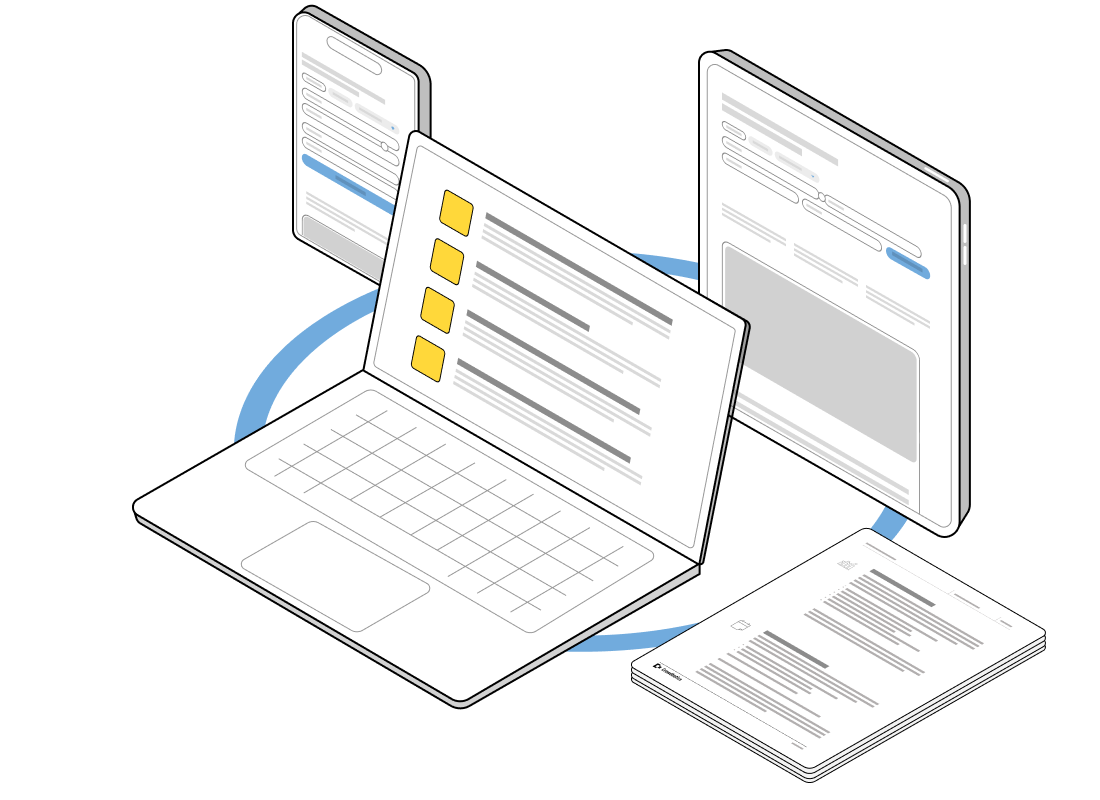What is an automotive app?
An automotive application is a web, mobile, or desktop application that enables users to research, buy, and maintain vehicles. Auto apps typically include interfaces for searching and viewing the features of different makes and models of cars. They may also allow users to browse new car listings by price range and view reviews written by other auto app users.
Automotive apps resemble other navigation apps with driving-related functionality, such as route mapping apps and vehicle tracking apps. Some examples of automotive apps include Waze, Google Maps, and Apple Maps.
Examples of automotive apps built with Crowdbotics:
- Once app opens it prompts you to connect to the device via Bluetooth.
- A bluetooth-enabled app so that users can toggle and customize colors of the lights on their vehicle from their phones. An important feature is ability of app to ping nearby towers, and recognize where illegal colors are restricted based on the state a driver is in.
- Interactive car building tool on auto website used for pre-sale to a customer. Vehicle will be highly customizable. Customers can interact with major features such as headlights, where a video plays in the digital showroom highlighting how they work.
What is the typical cost to build an automotive app?
An automotive app usually costs about $37,500 to build. However, the total cost can be as low as $25,000 or as high as $50,000. An automotive app with a low number of features (also known as a minimum viable product, or MVP) will be more affordable than an app that includes all intended functionality.
For example, here are some previous automotive app price quotes from Crowdbotics:
How long does it take to build an automotive app?
An automotive app usually takes 1427 hours to build. However, an automotive app can be built in as few as 67 hours, or in as many as 6667 hours. The exact timeline mostly depends on how complicated your specific app is. As a general rule, it will take longer if you require highly custom designs, niche features, complex logic, or non-standard release platforms.
For example, some previous automotive apps build with Crowdbotics received the following hourly estimates:
Not seeing what you’re looking for?
Crowdbotics has quoted and built hundreds of applications for teams of all sizes. Browse our historical estimates by industry and app type to understand possible costs and considerations.
How to successfully grow your automotive application
A car manufacturer or dealership can grow its app by focusing on the in-app experience. An auto app needs to convince the user that it is a convenient tool, and not just a sales platform. In order to achieve this, auto apps must provide safety information, entertainment options, and diagnostic tools. They should also give users the option to build their own custom vehicle from scratch (perhaps by including a 3D model of the car) and give them access to any trade-in values for their old vehicle.
Risks and challenges of building an automotive application
An automotive app faces legal and reputational risks related to driver safety, installation of software, and use of in-car hardware. This type of app should take great care to ensure that it is not subject to safety regulations by the National Highway Traffic Safety Administration (NHTSA) or similar agencies in other countries. The app developer will also need to be aware of applicable state laws regarding the installation of software on vehicles. Lastly, apps that leverage vehicle hardware may need to comply with warranty requirements for auto manufacturers as well as mobile device manufacturers.


